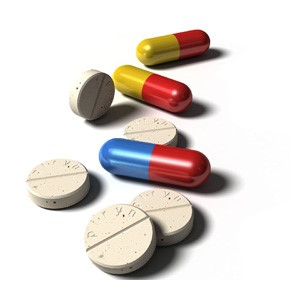DRUGS & ALCOHOL 101
A Parent Resource, presented by Eric Munson, CPP, ICPS
PRESCRIPTION DRUG FACTS
Street Terms: Xbrs or Xanibars (Xanax),Vic (Vicodin), skittles, Trail Mix, Pharm Party, parachuting, smurf snot, smurf coke, and more.
Commonly abused prescription drugs. (Street terms often include clinical names) Opioids: oxycodone (OxyContin), propoxyphene (Darvon), hydrocodone

What is It?
Prescription drugs are medicines that are prescribed to a patient by a doctor to manage pain, treat or cure a health condition such as pain, mental disease, diabetes, cancer, or common infections. These drugs are regulated by the Food and Drug Administration (FDA) and are shown to have medical benefits when prescribed and taken exactly as directed by a health provider. For people who are suffering, these drugs allow them to control their symptoms, cure or treat their diseases, control pain, or fight an infection. However, these medicines are only safe when taken exactly as directed by a doctor, healthcare provider, or as indicated on the packaging. This includes following directions on dosages, how often to take these drugs, and never taking any drug that is not prescribed for you.
Taking prescription drugs that are not prescribed to you - or taking them in any way other than directed by a doctor — is considered non-medical use or abuse and can be as dangerous as taking an illegal drug, such as cocaine or heroin. "Misuse" of a prescription drug is taking it to treat a medical condition but not as directed by a doctor or packaging; "abuse" is taking prescription drugs with the sole intention of getting high. When misused or abused, many prescription drugs can be as dangerous and addictive as "street" drugs. In recent years, there has been a dramatic increase in the number of poisonings and even deaths associated with the abuse and misuse of prescription drugs, including prescription painkillers and anti-depressants.
In other words, even if a medication is prescribed to you, taking larger doses than prescribed, taking it more often than directed, or using it in a way that it is not intended, is abuse and can also lead to severe health consequences and addiction. Between 1995 and 2005, treatment admissions for dependence on prescription pain relievers such as oxycodone (OxyContin) and hydrocodone/acetaminophen (Vicodin) grew more than 300 percent.
Taking prescription drugs without a prescription, not taking them as directed, or mixing them with alcohol are all unsafe and potentially deadly. A 2008 study based on 224,355 U.S. death certificates for which people died from medication errors showed that there was a 3,196 percent increase between 1983 and 2004 in deaths at home from combining prescription drugs with alcohol and/or street drugs.
It's Illegal
Additionally, getting prescription drugs without a prescription, called "diversion" is illegal and may put you at risk for arrest and prosecution. Regardless of how you acquire a prescription medication, using these types of drugs without a valid prescription — written for you — is unsafe and illegal.
Risks
Narcotics
- Restlessness, Nausea, Dizziness, Confusion, Respiratory depression, Scars (tracks) caused by injections, Loss of appetite, Cough, Lethargy, Tolerance, Addiction, Unconsciousness
- Withdrawal affects
- Watery eyes, Runny nose, Cramps, Loss of appetite, Irritability, Nausea, Tremors, Panic, Chills, Sweating
- Overdose
- Slow, shallow breathing, Clammy skin, Convulsions, Respiratory depression and arrest (stop breathing), Coma, Death
Depressants
- Intoxication similar to alcohol, Slurred speech, Impaired memory and judgment, Loss of motor coordination, Respiratory depression, Staggering or stumbling, Lack of coordination, Slurred speech, Falling asleep, Difficulty concentrating, Dilated pupils, Slowed pulse and breathing, Lowered blood pressure, Confusion, Addiction
- Withdrawal effects
- Anxiety, Insomnia, Muscle tremors, Loss of appetite, Convulsions, Delirium, Death
- Overdose
- Shallow respiration, Clammy skin, Dilated pupils, Weak and rapid pulse, Respiratory depression and arrest (stop breathing), Coma, Death
Stimulants
- Increased heart and respiratory rates, Rapid or irregular heart beat, Elevated blood pressure, Decreased appetite, Rapid or irregular heartbeat, Loss of coordination, Collapse, Unhealthy weight loss, Perspiration, Blurred vision, Irritability, Argumentativeness, Nervousness, Increased blood pressure or pulse rate, Dilated pupils, Long periods without sleeping or eating, Dizziness, Insomnia (can't sleep), Restlessness, Anxiety, Delusions
- Overdose
- Agitation, Increase in body temperature, Hallucinations, Heart failure, nervousness, Convulsions, Death, Addiction
- Withdrawal symptoms
- Apathy, Long periods of sleep, Irritability, Depression, Convulsions, Disorientation